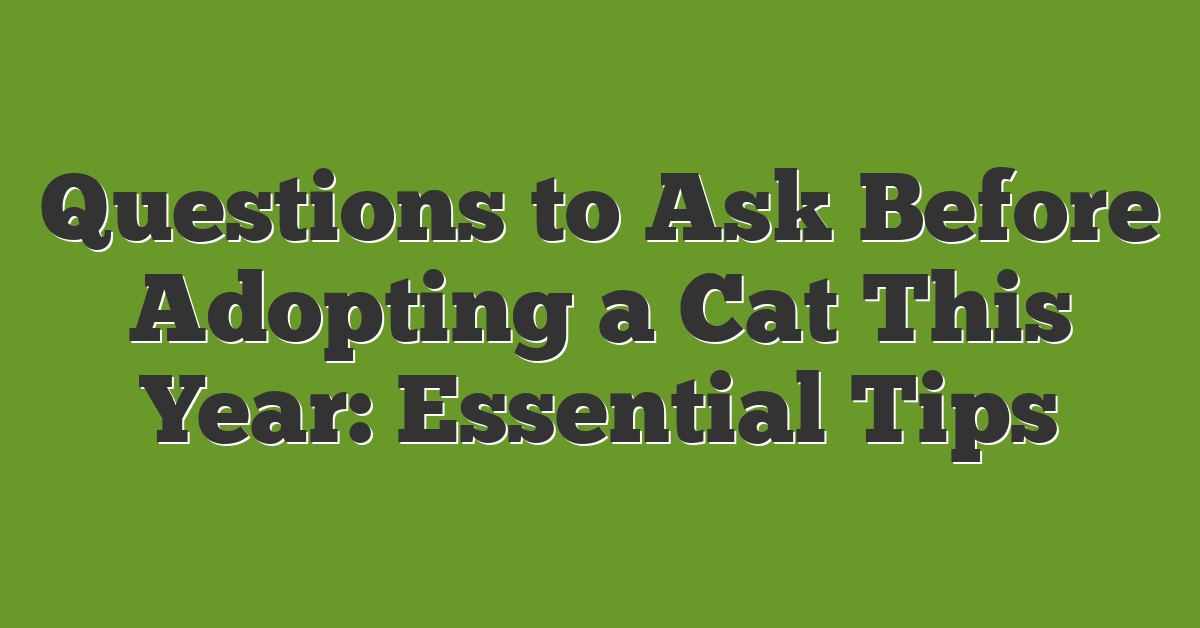Understanding Cat Behavior
Cats are fascinating creatures with unique behaviors that can sometimes be puzzling. Understanding why your cat hisses at your nephew can help you build a stronger bond with your feline friend. Here are a few key insights into cat behavior that can shed some light on this situation:
Cats and Territoriality
Cats are very territorial creatures. They have a strong need to establish and defend their territory, which includes your home. When your nephew enters this space, your cat may feel threatened or overwhelmed. Hissing is a common defensive behavior that cats use to communicate their discomfort or anxiety. It’s their way of saying, “Stay away!”
Fear and Stress
Cats are highly sensitive animals, and unfamiliar people or situations can cause them to feel fearful or stressed. Your nephew’s presence might be triggering these feelings in your cat. Hissing is often a response to fear or stress, a warning sign to stay away and respect their boundaries. It’s important to create a calm and safe environment for your cat, especially when new people are around.
Socialization and Trust
Cats are not naturally inclined to trust unfamiliar beings, including children. Unlike dogs, who are generally more social and outgoing, cats need time to warm up to new people. It’s important to teach your nephew how to approach and interact with your cat properly. Encourage him to give your cat space and let your cat come to him when they’re ready. Over time, as trust builds, your cat may become more comfortable and less likely to hiss.
Body Language Signals
Pay attention to your cat’s body language as they interact with your nephew. Flicking tail, flattened ears, dilated pupils, and a tense body are warning signs that your cat is feeling threatened or uncomfortable. By learning to read these signals, you can intervene and prevent any unpleasant interactions between your cat and nephew. It’s important to respect your cat’s boundaries and not force them into uncomfortable situations.
Understanding cat behavior can help you create a harmonious environment where your cat feels safe and secure. By addressing your cat’s concerns and providing positive experiences, you can gradually minimize the hissing and help your cat build trust with your nephew over time.
- ASPCA. (2021). Cat Behavior Tips. Retrieved from https://www.aspca.org/pet-care/cat-care/cat-behavior-tips
- American Humane. (2021). Cat Body Language. Retrieved from
Why Do Cats Hiss?
If you’re wondering why your cat hisses at your nephew, it’s important to understand that cats hiss as a way of communicating their discomfort or anxiety. Let’s dive into why cats hiss and what it means.
Communication Tool
Cats are masters of non-verbal communication. When they hiss, it’s their way of saying, “Back off! I’m not comfortable with this situation.” It’s their warning sign that they feel threatened or overwhelmed. Just like how humans might raise their voice or even shout when they’re scared or angry, cats hiss to send a clear message and establish boundaries.
Territorial Nature
Cats are territorial creatures. They have a strong instinct to protect their space and belongings. When someone, like your nephew, enters their territory, they may see it as a potential threat. New people or unfamiliar situations can make cats feel fearful and stressed, leading to defensive behaviors like hissing. It’s their way of asserting themselves and protecting what’s theirs.
Sensitivity to Change
Cats are sensitive by nature. They are finely tuned to their environment and can be easily spooked by new people or unfamiliar occurrences. Your nephew, being a new and unfamiliar presence, might be causing your cat to feel on edge. Allow your cat some time and space to adjust to the change. Create a calm and safe environment to help ease their anxiety.
Trust and Understanding
It’s important to remember that cats are not naturally inclined to trust unfamiliar beings, including children. Teaching your nephew how to approach and interact with a cat properly is crucial. Help your nephew understand that cats need their space and gentle interactions. Encourage him to approach slowly and avoid sudden movements or loud noises that might startle the cat.
Pay Attention to Body Language
By paying close attention to your cat’s body language, you can gain key insights into their emotions. Look out for flattened ears, a puffed-up tail, or an arched back, as these are signs that your cat is feeling uncomfortable or threatened. If you notice these warning signs, it’s best to give your cat some space and allow them to calm down.
Understanding why cats hiss can help create a harmonious environment where your furry friend feels safe and secure. Remember, patience and compassion are key when helping your cat adjust to new people and situations.
Possible Reasons for the Hissing
When your cat hisses at your nephew, it can be a concerning and confusing situation. As a cat lover, enthusiast, and expert, I understand your desire to find out why this is happening. Here are a few possible reasons why your cat might be hissing:
- Fear or Anxiety: Cats are naturally cautious creatures, and they can easily feel threatened or overwhelmed by new people, especially children who may be loud or unpredictable. Your cat may be hissing as a way of expressing fear or anxiety towards your nephew.
- Territorial Behavior: Cats are territorial animals, and they often see unfamiliar individuals, such as your nephew, as potential intruders. They might hiss as a warning sign to protect their territory and establish boundaries.
- Lack of Trust: Cats are not naturally inclined to trust unfamiliar beings, including children. Your cat may need more time to acclimate to your nephew and build trust. It’s important to teach your nephew how to approach and interact gently with your cat to help establish a positive relationship.
- Past Negative Experience: Cats have excellent memories, and if your cat has had a negative encounter with a child in the past, they may associate that experience with your nephew. This can result in defensive behaviors, such as hissing.
- Illness or Pain: It’s essential to consider your cat’s overall health when they display unusual behavior. If your cat is in pain or discomfort, they may hiss as a defensive response. If you notice any other signs of illness or distress, it’s best to consult with a veterinarian.
Understanding the possible reasons behind your cat’s hissing is crucial for resolving the issue. Remember, the process of building trust and creating a harmonious environment takes time and patience. By providing a safe and secure space for your cat and educating your nephew on proper cat interactions, you can help improve their relationship.
Behavioral Signs to Look For
If you’re wondering why your cat hisses at your nephew, it’s important to understand that cats communicate through their behavior. Here are some behavioral signs to look for that might help you understand your cat’s hissing:
- Body Language: Pay attention to your cat’s body language when your nephew is around. If your cat is crouched low, with her ears flattened back, and her tail thrashing, it’s a sign that she’s feeling threatened or anxious. Hissing is often a defensive reaction in such situations.
- Hiding or Avoiding: If your cat hides or avoids your nephew whenever he’s around, it could be a sign that she’s uncomfortable or scared. Cats need their own safe spaces, and if they feel their territory is invaded, they may respond with hissing.
- Elevated Aggression: Is your cat showing aggressive behavior towards your nephew, such as swatting, scratching, or biting? These aggressive actions, combined with hissing, could be a sign that your cat feels the need to protect herself or establish boundaries.
- Freezing or Stiffening: Watch out for signs of your cat freezing or stiffening when your nephew approaches. This could indicate fear or unease, leading to hissing as a defensive response.
- Puffed-up Fur: Keep an eye on your cat’s fur. If she puffs up her fur, especially along her back and tail, it’s a clear indication that she’s feeling threatened or trying to appear larger to intimidate your nephew.
Remember, hissing is your cat’s way of expressing her discomfort or trying to ward off potential threats. It’s important to approach these situations with empathy and respect for your cat’s boundaries.
By recognizing these behavioral signs and taking appropriate steps, you can help create a more harmonious environment for both your cat and your nephew. In the next section, we’ll discuss some strategies to build trust and alleviate your cat’s hissing behavior.
Interactions Between Cats and Children
When it comes to cats and children, it’s important to remember that they are both curious creatures. While some cats can be patient and tolerant of children, others may feel stressed or anxious around them. Understanding how to foster positive interactions can help create a harmonious environment for both your cat and your nephew. Here are a few things to consider:
1. Teach your nephew to respect personal space
Explain to your nephew that cats need their own space and sometimes want to be left alone. Encourage him to observe the cat’s body language. If the cat looks tense, has a stiff posture, or hisses, it’s a sign that he needs some space. Teach your nephew to give the cat some freedom and avoid sudden movements.
2. Supervise interactions
It’s crucial to always supervise interactions between your cat and your nephew, especially if your nephew is young. This will ensure their safety and prevent any rough handling or accidental harm. Keep an eye out for any signs of stress or discomfort from your cat, and intervene if necessary.
3. Teach gentle handling
Help your nephew understand that cats are delicate creatures. Encourage him to pet the cat gently, using slow and smooth strokes. Remind him to avoid pulling the cat’s tail, ears, or whiskers. This will help create positive associations and build trust between them.
4. Provide safe spaces
To help your cat feel more comfortable around your nephew, create designated safe spaces for the cat. These can be elevated surfaces, such as shelves or cat trees, where the cat can observe from a distance. Ensure that these spaces are easily accessible and not disturbed by your nephew.
Remember, every cat is unique and may have different comfort levels when it comes to interacting with children. Some cats might warm up to your nephew quickly, while others might take more time. By understanding and respecting your cat’s boundaries, you can help foster a positive relationship between your cat and your nephew.
Keep in mind that it’s important to seek professional advice if you notice any persistent aggressive behavior from your cat towards your nephew. A veterinarian or animal behaviorist can provide guidance tailored to your specific situation.
So, next time your nephew interacts with your cat, keep these tips in mind to ensure a positive and enjoyable experience for both of them.
How to Help Your Cat Feel Safe
Creating a safe and secure environment for your cat is essential for their well-being. Here are some tips to help your cat feel safe and comfortable around your nephew:
1. Provide a Safe Space
Cats need a place where they can retreat and feel secure. Set up a designated area in your home, such as a quiet room or a cozy cat bed, where your cat can escape to when they need some alone time. Make sure your nephew understands that this space is off-limits and that your cat should be allowed to relax undisturbed.
2. Gradual Introductions
Introduce your nephew to your cat slowly and gently. Encourage your nephew to approach quietly and calmly, avoiding sudden movements or loud noises. Let your cat set the pace and decide how close they want to get. Supervise these interactions closely to ensure that both your cat and your nephew feel comfortable.
3. Teach Respectful Behavior
Teach your nephew how to interact respectfully with your cat. Emphasize the importance of gentle handling, avoiding pulling on their tail or ears, and not bothering them while they eat or sleep. Encourage your nephew to use soft, soothing tones to speak to your cat and to offer treats or toys as positive associations.
4. Positive Reinforcement
Reward your cat for calm and positive interactions with your nephew. Praise your cat when they approach your nephew without showing signs of fear or aggression. Encourage your nephew to reward your cat with treats or playtime when they engage in peaceful interactions. This will help build trust and create a positive bond between them.
5. Seek Professional Help
If your cat continues to hiss or show signs of distress around your nephew, it may be helpful to seek advice from a professional, such as a veterinarian or an animal behaviorist. They can provide further guidance and offer strategies tailored to your specific situation.
By implementing these tips, you can help your cat feel safe and comfortable in the presence of your nephew. Remember to be patient and understanding, as every cat is unique and may require different levels of adjustment. With time and consistent positive interactions, your cat and your nephew can develop a harmonious relationship.
Keep reading for more advice on how to create a harmonious environment for both your cat and your child.
Conclusion
Helping your cat feel safe and comfortable around children is essential for a harmonious household. By following the tips provided in this article, you can create a positive environment for both your cat and your nephew.
Remember to provide a safe space for your cat to retreat to when they feel overwhelmed. Introduce your child to the cat gradually and gently, allowing them to build trust at their own pace. Teach your child to be respectful and gentle with the cat, using positive reinforcement to encourage appropriate behavior.
Every cat is unique, so be patient and understanding as they adjust to the presence of a child. If you encounter any challenges, don’t hesitate to seek professional help. With time and effort, your cat and nephew can develop a loving and respectful relationship.
By implementing these strategies, you can ensure that your cat feels secure and your nephew learns to interact with animals in a kind and compassionate way. Building a positive bond between your cat and your nephew will create a lasting friendship that will benefit both of them for years to come.
Frequently Asked Questions
Q: How can I help my cat feel safe and comfortable around children?
A: You can help your cat feel safe and comfortable around children by providing a safe space for the cat to retreat to, introducing the child to the cat gradually and gently, teaching respectful behavior, using positive reinforcement, and seeking professional help if needed.
Q: What should I do if my cat is not adjusting well to children?
A: If your cat is not adjusting well to children, it is important to seek professional help. A veterinarian or animal behaviorist can provide guidance and advice tailored to your cat’s specific needs.
Q: Why is it important to be patient and understanding?
A: Being patient and understanding is important because every cat is unique and may require different levels of adjustment. It takes time for cats to feel comfortable around children, and rushing the process can lead to stress and anxiety for both the cat and the child.












